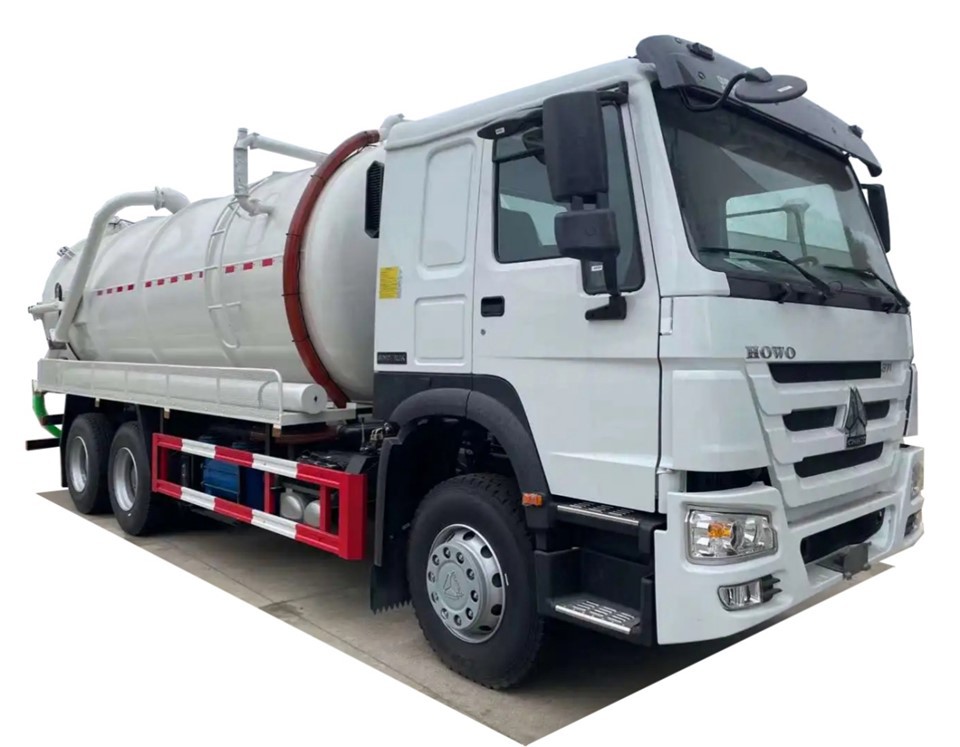Japan is well-known for its innovative approach to waste management, and one of the standout components of this system is the Japanese garbage truck. These vehicles are not just efficient in collecting waste; they reflect a commitment to cleanliness and organization that is deeply rooted in Japanese culture. This article delves into everything you need to know about Japanese garbage trucks, from their design and functionality to how they contribute to a cleaner environment.
The Importance of Waste Management in Japan
Waste management is crucial in Japan, a country with a high population density and limited land. Effective waste disposal helps reduce pollution and keep cities clean. The integration of efficient garbage trucks into this system plays a significant role.
Traditional vs. Modern Waste Management
Japan’s waste management systems have evolved over the years. Traditional methods involved community-driven initiatives, while modern approaches lean heavily on technology and efficiency. This transition has helped minimize waste and promote recycling across various regions.
Design Features of Japanese Garbage Trucks
The design of Japanese garbage trucks is tailored to meet specific urban needs. Here are some distinctive features that make these vehicles stand out:
Compact Size for Urban Navigation
Many Japanese garbage trucks are compact, allowing them to navigate narrow streets and congested areas easily. This is especially vital in densely populated cities like Tokyo.
Benefits of Compact Garbage Trucks
- Improved maneuverability in tight spaces.
- Reduced fuel consumption and emissions.
- Enhanced service efficiency in urban settings.
Automated Collection Systems
Some Japanese garbage trucks use automated collection systems that allow for faster and more efficient waste collection. With these systems, waste bins are lifted and emptied automatically, reducing manual labor and speeding up the process.
Examples of Automated Systems
| Type | Description |
|---|---|
| Side Loader | Collects waste from the side of the truck using robotic arms. |
| Rear Loader | Utilizes hydraulics to lift and dispose of waste bins from the rear. |
How Japanese Garbage Trucks Promote Recycling
Recycling is a significant focus in Japan, and garbage trucks play a crucial role in this effort. Here’s how they contribute:
Separation at Source
Residents are encouraged to separate their waste into categories such as burnable, non-burnable, and recyclables. Garbage trucks are designed to accommodate these different categories effectively.
Recycling Categories
| Category | Examples |
|---|---|
| Burnable | Food waste, paper products |
| Non-burnable | Glass, ceramics |
| Recyclables | Plastic, metals, cardboard |
Education and Awareness Programs
The Japanese government invests in educational programs to teach residents about proper waste disposal and the importance of recycling, which further enhances the effectiveness of garbage collection efforts.
Challenges Faced by Japanese Garbage Trucks
Despite their advantages, Japanese garbage trucks encounter various challenges:
Aging Fleet
Many municipalities face the issue of an aging fleet, which can lead to higher maintenance costs and reduced efficiency in waste collection.
Increased Waste Generation
As urban areas grow, the amount of waste generated continues to increase, putting strain on existing systems and necessitating more advanced solutions.
The Role of Technology in Garbage Collection
Technology plays a vital role in enhancing the functions of garbage trucks in Japan:
GPS and Route Optimization
Most Japanese garbage trucks are equipped with GPS technology, allowing for efficient route optimization and ensuring timely waste collection.
Smart Waste Management Systems
Some municipalities have implemented smart waste management systems that use sensors to monitor bin levels and optimize collection schedules, reducing operational costs and environmental impact.
Case Studies of Successful Japanese Waste Management
Tokyo’s Waste Management System
Tokyo has developed a comprehensive waste management system primarily driven by its unique fleet of garbage trucks. The city has adopted methods that promote recycling and waste separation, leading to an overall reduction in landfill usage.
Fukuoka’s Community Engagement
Fukuoka’s approach combines community involvement with advanced waste management technology. Residents are trained to sort their waste effectively, and garbage trucks are designed to streamline the collection process.
Practical Tips for Effective Waste Management at Home
To emulate Japan’s successful waste management practices, consider the following tips:
- Separate Your Waste: Create designated containers for burnable, non-burnable, and recyclable waste.
- Reduce Waste: Embrace a zero-waste lifestyle by minimizing single-use items and repurposing where possible.
- Educate Yourself: Stay informed about local waste management practices and guidelines.
Future of Garbage Trucks in Japan
The future of garbage trucks in Japan is leaning towards eco-friendliness and automation. Emerging technologies such as electric garbage trucks and drones for waste monitoring are paving the way for more sustainable waste management solutions.
Vertical Garbage Trucks
Innovations are also leading to the development of vertical garbage trucks, which can collect waste from multiple stories in high-rise buildings, thereby increasing efficiency.
FAQs about Japanese Garbage Trucks
What makes Japanese garbage trucks different from those in other countries?
Japanese garbage trucks are often more compact, utilize advanced technology for waste collection, and emphasize recycling and proper waste separation.
How do Japanese citizens participate in waste management?
Citizens are encouraged to separate their waste into various categories, participate in community education programs, and abide by strict disposal schedules.
Are Japanese garbage trucks environmentally friendly?
Yes, many Japanese garbage trucks are designed to reduce emissions and promote recycling, contributing to a cleaner environment.
What technology is used in Japanese garbage trucks?
Japanese garbage trucks often feature GPS systems for route optimization, automated collection systems, and smart waste management technology to monitor bin levels.
How can other countries learn from Japan’s waste management practices?
Countries can focus on enhancing community awareness, implementing separation at the source, and investing in advanced waste collection technology to improve their waste management systems.
What is the future of garbage trucks in Japan?
The future is likely to include the use of electric vehicles, continued advancements in automation, and technologies aimed at improving waste collection efficiency and sustainability.





